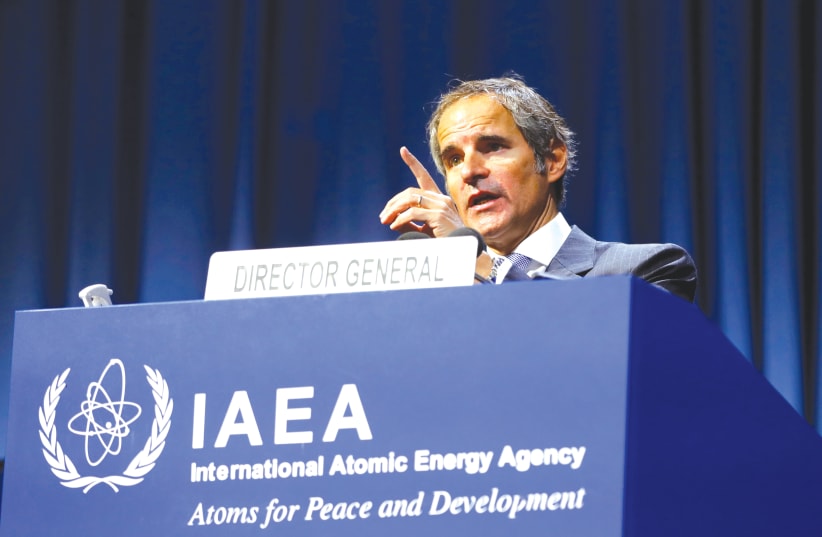There is a fascinating dance going on between Iran and the IAEA, and it is not clear where the music will stop.
With Monday night’s blistering report against the Islamic Republic from the IAEA saying unambiguously that Iran failed to clarify illicit nuclear issues at three sites, the question is whether the agency is looking to blow up the nuclear talks in Vienna.
The short answer is probably not, but with an asterisk.
Right now Tehran seems to be playing a dangerous game where it continues to jump forward with nuclear enrichment, threatens to kick out international inspectors on June 24 if sanctions are not yet lifted, drags out the nuclear talks – but still seems to want a deal sometime soon.
The latest report from the IAEA seems to be a not-so-veiled reminder to the ayatollahs that the inspection agency has its own threats to hold over them.
There is no question that IAEA Director-General Rafael Grossi prefers a return to the 2015 JCPOA nuclear deal.
His recent news conference and a media appearance made it clear that he views the Iranian threat as much greater without being regulated by the JCPOA’s limitations than with them.
One way to read Monday night’s report is Grossi saying: ‘You want to kick us out? We’ll double your bet and put all of your past nuclear history back on center stage and maybe refer you to the UN Security Council.’
It has been 10 months since Iran granted Grossi access to the sites in dispute after preventing IAEA access for two years.
That was the last time he and the IAEA Board of Governors threatened to take the Islamic Republic to the UNSC.
Grossi has shown tremendous patience since then for Tehran to explain the illicit nuclear material his inspectors found.
If Iran wants to signal that its patience is running out on the US lifting sanctions, and that it will try to use kicking out IAEA inspectors as a bargaining chip, Grossi is making it clear that it will need to make a choice: cross the Rubicon to rejoin the JCPOA or risk new levels of isolation.
Another reading is that the report has nothing to do with the nuclear talks in Vienna or with the June 24 deadline. In this narrative, the IAEA always issues quarterly reports and this was the preset date for the next report to come out.
But if that were true, Grossi would have watered down the report’s language.
His predecessor, Yukiya Amano, was a master at giving updates, while dragging out the process to give Iran far more time on pressing issues than Grossi has given.
Grossi is a patient man, but wants the process to lead to results. Amano was satisfied as long as the process and dialogue continued.
Ultimately, Grossi is not trying to blow up the talks.
But he made it clear to the Islamic Republic that if it drags out the proceeding much longer or carries out any of its threats, there will be a high cost.
